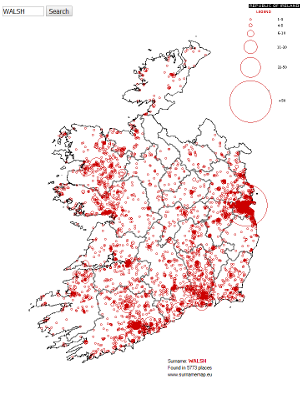
Definition of Surname
A surname, also known as a family name or last name, is a hereditary name passed down from one generation to another and serves to identify the family to which an individual belongs. Today, surnames are placed after the given name, but historically the order and use of surnames varied across cultures and regions. Surnames are not just identifiers: they carry social, cultural, and historical significance, often reflecting lineage, occupation, geographic origin, or personal traits. In Ireland, the use of surnames developed alongside social structures and tribal systems, serving to identify clans, families, and territories.
Surnames often originate from four primary sources:
- Patronymic or matronymic names: Derived from the name of a father, mother, or ancestor, such as O'Brien (descendant of Brien) or MacCarthy (son of Carthy).
- Occupational names: Based on the profession of the individual or their ancestor, such as Smith or Carpenter.
- Toponymic names: Originating from a geographic location, such as Hill or Wood, indicating where a person or family lived.
- Descriptive or nickname-based names: Reflecting personal traits, physical appearance, or temperament, such as Brown, Armstrong, or Short.
History of Surnames in Ireland
The use of surnames in Ireland dates back over a thousand years, long before they became common in much of Western Europe. Early Irish surnames were often patronymic, using the prefixes Ó (“descendant of”) or Mac (“son of”), followed by the name of the family progenitor. For example, Ó Néill refers to the descendants of Niall, while MacDermott means son of Dermott.
During the medieval period, Irish surnames not only identified families but also clans and territories. They played a central role in social organization, helping to define alliances, land ownership, and social status. Some surnames also originated from ancient kings, chieftains, or local heroes, preserving the historical memory of families and clans.
From the 16th century onward, with English colonization and the introduction of bureaucratic systems, surnames began to stabilize and be recorded in official documents such as parish registers, censuses, and legal deeds. This process also produced multiple written variants of the same surname, influenced by local Gaelic pronunciation and English transcription.
Irish surnames reflect a rich mixture of linguistic, cultural, and geographic influences. Many have Gaelic roots, while others come from Norman or Anglo-Norman origins, brought to Ireland through invasions and migration. For example, surnames like Fitzgerald or Burke are Norman in origin, while Murphy or Kelly have ancient Gaelic roots.
Over the centuries, the use of surnames in Ireland continued to evolve, reflecting social changes, internal migrations, and emigration abroad. Today, Irish surnames not only identify families but are also symbols of cultural heritage and national identity. Many Irish descendants around the world proudly carry surnames that tell centuries of history, migration, and tradition.
In conclusion, surnames in Ireland are more than simple labels: they are historical and cultural tools that connect individuals to families, clans, and territories. From their patronymic and tribal origins to their modern role as markers of identity and heritage, Irish surnames offer a unique window into the island’s social and cultural history.
| Share on WhatsApp |